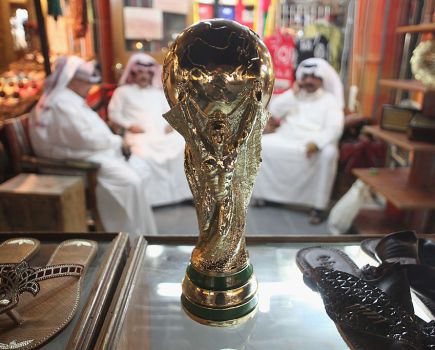 Brazil has chalked up another black mark in its confused preparations for next year’s World Cup and the 2016 Olympics in Rio de Janeiro.
Brazil has chalked up another black mark in its confused preparations for next year’s World Cup and the 2016 Olympics in Rio de Janeiro.
The country’s authorities have had more than six years to prepare for the football and four years for the Games yet it has not been able to put a WADA-accredited laboratory in place.
The World Anti-Doping Agency and FIFA have thus confirmed – after joint discussions with the Brazilians – that the world football federation will fly all blood and urine samples to the WADA-accredited laboratory in Lausanne, Switzerland, during the finals.
This follows the WADA revocation of its accreditation for the LADETEC laboratory in Rio and follows what has been described as “thorough consideration and discussion with WADA and the Brazilian authorities.”
Two players from each team are chosen at random to give samples at the end of every match in the World Cup finals.
No clarification has emerged on whether FIFA or the Brazilian organisers will foot the transport bill and how both will meet criticism of the inevitable carbon footprint.
A FIFA statement said: “For next year’s World Cup, FIFA and WADA will ensure the best possible analysis of urine and blood samples and the proper implementation of the new strategy in the fight against doping by means of the steroid module of the Athlete Biological Passport. FIFA is now taking the necessary logistical steps for the shipment of samples overseas.”






